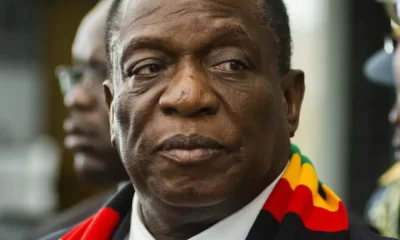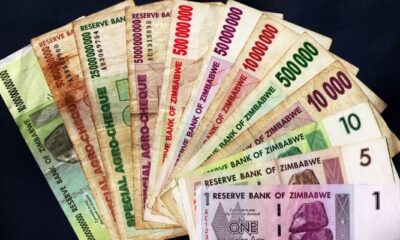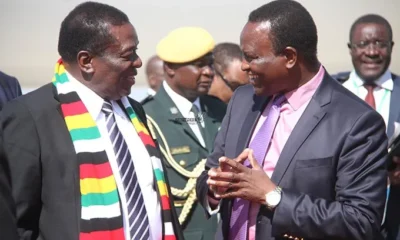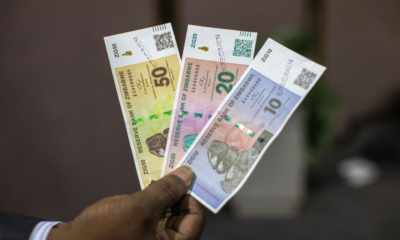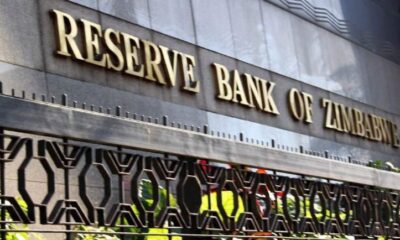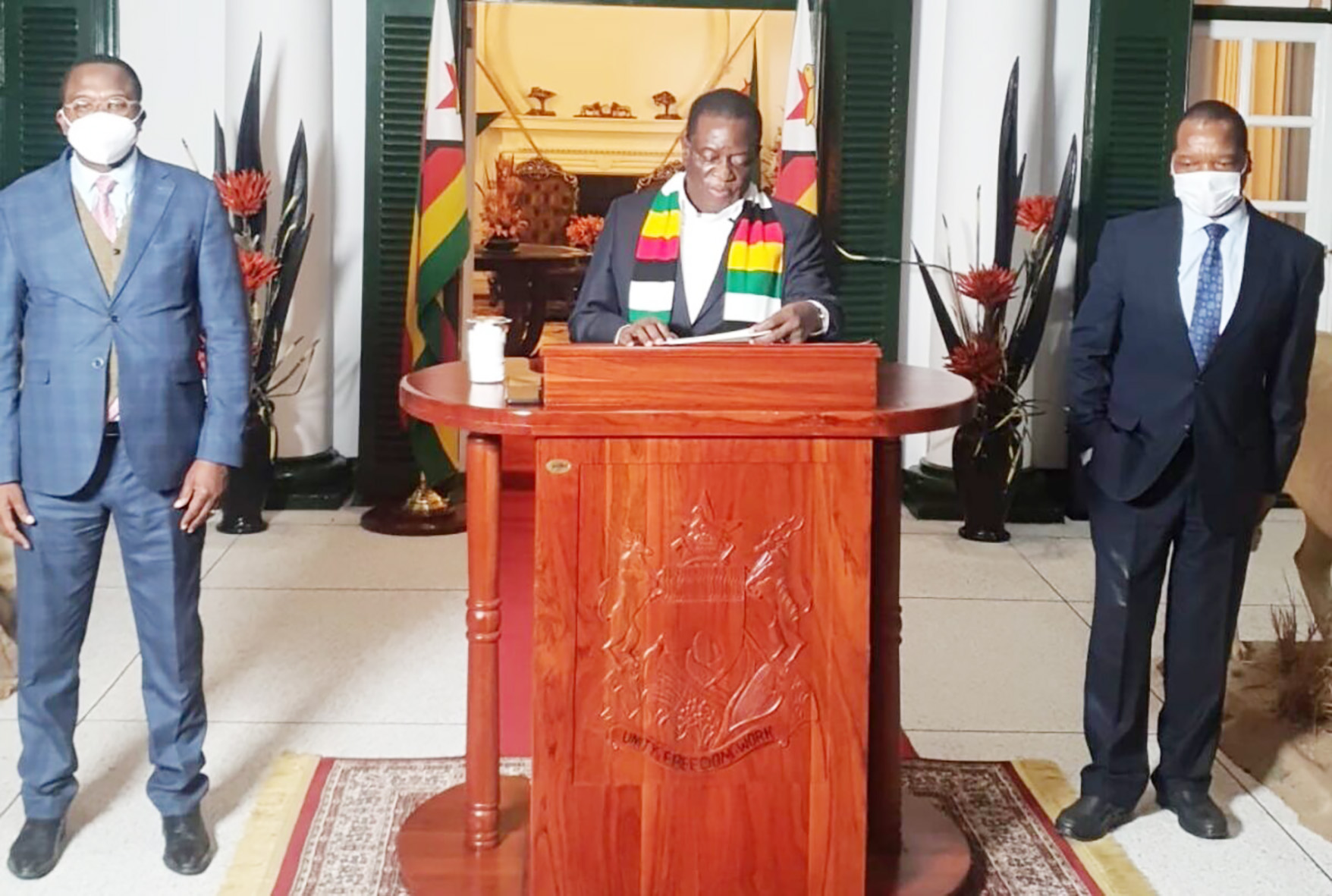
Opinion
Presidential decree – a bout of economic madness and cocktail of illegalities
Published
2 years agoon
By
NewsHawksALEX MAGAISA
ON 7 May 2022, President Emmerson Mnangagwa issued an economic declaration that must surely claim a place among the most absurd economic policy initiatives by a governmental authority anywhere in the world.
Apart from reversing a disastrous public transport monopoly that should never have been established in the first place, the rest of the measures were knee-jerk reactions to try to solve an economic problem that is fast spiraling out of control.
Among the raft of measures was an outright ban on bank lending whose immediate effect was to pose an existential threat to financial institutions, particularly those solely licensed to carry out lending activities. The presidential decree was self-defeating: by banning lending, a government whose mantra is “Zimbabwe is open for business” was effectively sending the message to the market that it has no trust in the country’s future. To appreciate the weight of this message, one must understand the concept of credit and the basis upon which it is constructed.
No trust in the future
The concept of credit is intimately tied to trust in the future. As historian Yuval Noah Harari puts it, credit represents the difference between today’s pie and tomorrow’s pie. You can only lend when you believe that tomorrow’s pie will be bigger than today’s pie. When a bank lends money to a company, it is because both the bank and the company have trust that the company’s future will be brighter than its present. This means the company will be able to repay the loan plus interest, from which the bank derives its income.
Therefore, all credit is based on trust in the future; a belief that tomorrow will be better than today. There is more and cheaper credit in an economy where there is more trust in the future. By contrast, where there is no trust in the future, there is less credit and where it is available, the credit is usually short-term and very expensive.
All this leads to the conclusion that when you ban credit, you are effectively saying that you have no trust in the future. You are saying the future cannot be better than the present. Far from promoting belief in the economy, the Zimbabwean government’s hare-brained declaration is sending negative and demotivating messages to the market.
Besides, as already stated, banning bank lending undermines the core of banking businesses, which threatens their very existence. One of the principal sources of bank income is lending and charging interest. The interest represents the profit a bank makes when it lends money. Prohibiting lending is like stopping a dairy farmer from selling milk. It destroys a critical source of income and threatens the viability of the business.
A rise in bank charges
However, as I will demonstrate, it is the ordinary citizens that carry the heavy burden of this hare-brained policy intervention because banks will devise ways to survive. One other source of income for banks is bank charges. Banks charge customers for all sorts of services. They might charge for maintaining the account, making transfers, using cash machines, printing statements, custody of assets and so much more. Customers regularly complain of too many bank charges. Now, if they can’t earn income from lending because of the government ban, banks will simply go for the next easy target: the customers. They will just raise their charges, and some might even invent new charges. Already some banks have started sending notices to their customers regarding increases in tariffs. The government’s ban, therefore, hurts ordinary citizens the most as banks pass on the burden.
Job losses
Another constituency that bears the burden is bank workers. Whenever capital suffers a hit, labour takes a heavy beating. Banks will start talking of restructuring and staff rationalisation, which is corporate-speak for job cuts. Wages might also fall or stagnate. In this way, capital passes on the cost of the government’s misguided policies to labour. That will mean more people joining the ranks of the unemployed and many young people being kept out of employment as companies reduce their intake.
Rise in cost of goods and services
Companies that use banking services will be hurt by the rising bank charges. But like the banks, these businesses also have an easy outlet for their pain. They will just pass it on to their customers by raising the prices of their goods and services. The ultimate victim of the government’s ridiculous ban on bank lending is the long-suffering citizen who has no outlet. For many, the only way to avoid the high prices is to forgo the goods and services, which effectively means rising household poverty.
Loss of credit facilities
Another predictable consequence of the ban on bank lending has already manifested in the past week as businesses that offer goods and services on credit responded by shutting down all credit facilities. The Surrey Group wrote to its clients indicating that it was suspending credit facilities.
Fivet, which specialises in veterinary goods and services also suspended credit facilities as did hotel chain Cresta Hotels and Wholesale Beef which is based in Bulawayo.
Tongaat Hullett, the sugar producer was more direct in attributing its change of course to the government’s ban on bank lending when it announced that it was cutting all advance payments to farmers. “We normally fund the advances from proceeds that we access from the banks. Following the recent suspension of lending by banks we find ourselves unable to continue offering advances,” wrote the company in its communication to sugar-cane producers.
The ban has therefore had a predictable chain reaction in the credit system. The supply chain in the credit system has been broken by the ban. If the banks cannot give credit, those that rely on bank loans will also not be able to provide credit to their customers. This creates a vicious cycle: If in the case of sugar-cane farmers, those customers are producers of goods, this will put a squeeze on production. If this results in low production, trust in the future is eroded. Consequently, there will be less credit where there is no trust in the future. The result is increasing levels of poverty among those at the bottom of the credit chain.
Realizing the carnage that the presidential decree was having on the credit market, the RBZ tried to make an exception. Late on 12 May, the RBZ tweeted, “Suspension of lending facilities does not apply to marketable commodities such as tobacco. Cotton, sugar, maize, etc. All banks have been advised accordingly”. This was in response to the obvious damage the outright ban on bank lending was causing on the production side of the economy, a belated realisation that the blanket declaration was unsound.
But still, this Twitter announcement is not without fault. It is vague because it does not define what it refers to as a “marketable commodity”. It mentions agricultural products which might mean the exception is limited to “marketable commodities” of the agricultural variety only. But is that the intention?
Furthermore, when it says “etc”, it leaves room for other commodities without limitation but what might these commodities be? This vagueness is not a good policy. It leaves room for guesswork and corruption. All this could easily be resolved by having a clear legal instrument that regulates market conduct, not an illegal presidential decree amended through social media and press statements. That’s not how to run an economy.
Cancellation of dividends
The ban on bank lending has also put a squeeze on companies’ cash resources affecting their ability to meet their legal obligations. One listed company, Dairibord suspended the payment of dividends to shareholders. This is to preserve the cash it has for working capital. It would have relied on bank loans to plug the gap but with the ban, that tap has been shut. This means existing shareholders that were due to receive dividends as a return on their investment must wait.
Risk of litigation
However, since this dividend had already been declared, the suspension of payment exposes Dairibord to a lawsuit by one or more of any disgruntled shareholders. This is because although ordinarily, a shareholder does not have a right to demand a dividend, once it has been declared by the directors, a dividend becomes a legally claimable right. The only reason the shareholders might avoid taking legal action, in this case, is because it is not in their interests to sue the company in which they are invested in the long term. But while existing shareholders might bite their teeth and take the pain because they understand the difficult operating environment that has forced the company to take such drastic action, this type of news is not encouraging to prospective investors. The ban on bank lending therefore could have wider ramifications on the country’s reputation as an investment destination.
Rise of “chimbadzo”
One inevitable consequence of the ban on bank lending is the proliferation of a black market in credit. Banks and other credit institutions are licensed to provide lending which makes it a regulated business. Regulation means the regulator can keep an eye on the licensed credit market, ensuring that there is compliance with rules of fair play. This is important for the protection of consumers. However, this does not mean there is no unregulated credit business that goes on in the economy. Loan sharks – individuals and companies that offer short-term and punitively high-interest loans have existed from time immemorial. The common name of this type of punitive loan is “chimbadzo”.
The methods used in the “chimbadzo” business are harsh and often brutal, especially in the collection of payments. The exceedingly high rates of interest mean that individuals are often caught up in a never-ending debt cycle. Once in debt, it’s hard to get out and debtors live at the mercy of their creditors. This is part of the dark economy that operates alongside the formal economy. However, the need for “chimbadzo” services is limited by the availability of credit through formal and regulated institutions. People are less likely to resort to loan sharks if they have access to credit in the formal markets. It is usually those that cannot access credit on the formal markets that fall victim to the loan sharks.
Now, however, with the government’s ban on bank lending, everyone who wants finance is forced to go to the black market in which the loan sharks reign supreme. The government’s ban on bank lending, therefore, serves to fuel a rise in the black market in credit, creating a new breed of merchants in the “chimbadzo” business. Because it is unregulated, it will be the Wild West of the credit market. Since the cost of accessing credit in the “chimbadzo” market is high, businesses getting finance from there will simply pass it on to the consumers meaning a rise in the cost of goods and services.
Legal deficiencies
Apart from the economic ramifications, the presidential decree also has important legal deficiencies. The measures were announced without any legal instrument to back them. In the absence of a recognized legal instrument, the central bank resorted to referring to the measures as a “Presidential Announcement”. But there is no legal instrument under Zimbabwean law that is called a Presidential Announcement.
It is trite that any directive that affects the right to private property must be based on a law of general application.
If it is not passed by Parliament as primary legislation, then it must be issued under a statutory instrument as secondary legislation. Secondary legislation can only be issued within the terms prescribed by the primary or enabling legislation. No such legislation was cited in this decree. At the very least, President Mnangagwa could have used the Presidential Powers (Temporary Measures) Act, which permits the President to issue regulations temporarily.
This is a controversial law that is arguably unconstitutional, but at least it exists in the statute books and is available to be used until it is repealed or struck down by the courts. However, it is a sign of a sheer disregard for the rule of law that President Mnangagwa and his advisers could not even be bothered to resort to it and decided instead to issue a blunt and illegal instrument. This is a country in which a President has no regard for legality that important economic measures with serious consequences are issued under a blatantly illegal process.
Why there is no legal challenge from the affected banks
Curiously, despite the economic imprudence and illegalities of the presidential decree, there was a muted response from the banking industry. There was virtual silence from the Bankers’ Association of Zimbabwe, the body that represents regulated banks in the country. Its mute response was a total contrast to its excitement when the government introduced the foreign currency auction system in 2020.
Ironically, it is that foreign currency auction system that has proved disastrous, leading to a free-fall in the Zimbabwe Dollar and the government’s knee-jerk reaction to banning bank lending.
Only one bank, BancABC issued a critique that, although directed at its clients, found its way into the public domain. The statement was sober and critical of the measures introduced by the decree. It highlighted the existential threat that it posed to the banking sector and the policy inconsistencies that had a bad impact on the economy. However, in an interesting and intriguing twist of events, BancABC issued another statement disowning its earlier statement. In its second statement, BancABC declared that it was “fully aligned with the directive issued by the Monetary Authorities” pledging to “implement all measures as directed and in full compliance with the law”. The irony of all this is that the bank was pledging compliance with an illegal “directive”. Why would the bank disown what was in fact a sober and measured critique of the ridiculous decree?
The answer lies in two parts: first, is that there is the rule of fear which is practiced by the regulatory authorities. The Reserve Bank of Zimbabwe behaves like the government whose operating manual is based on authoritarianism.
It rules the financial sector with an iron fist. The same fear with which the government exercises power over citizens is what the RBZ uses toward regulated entities. The result is that just like citizens fear their government, financial institutions are also fearful of the central bank. They would rather comply with an illegal directive than challenge it because the regulatory authority is vindictive. Like citizens, regulated institutions have habituated to government illegalities. They might complain for a moment but eventually, they just fall into line.
The second reason is the absence of the rule of law in Zimbabwe. In countries where the rule of law prevails, citizens and corporations have the confidence to defy and challenge regulatory authorities. If there was respect for the rule of law in Zimbabwe and companies were confident that they could find refuge in the courts and the law, they would probably challenge illegalities as other companies do in other jurisdictions. This certainly used to be the norm in the past.
For example, Econet, now an international phenomenon, would never have been established had it not successfully challenged the state-run monopoly, the Posts and Telecommunications Corporation in the late 1990s. It got its first license through a Supreme Court decision and the government duly complied. But that was in another era when there was a semblance of the rule of law in Zimbabwe. By contrast, it is doubtful that Econet would achieve the same success in current times with the way the judicial institution has become compromised and politicised.
Those that dare to challenge the regulatory authorities invite vindictive attacks. In an authoritarian environment, the attacks come in various ways with tax, policing, and licensing authorities being weaponised against individuals and companies that challenge the regime.
As a result, facing vulnerabilities, very few individuals or companies have the guts to challenge illegalities even if they are obvious. The Confederation of Zimbabwe Industries (CZI) another industry association that issued a biting critique of the government’s economic policies a few weeks ago ended up making a U-turn and disowning its earlier statement. Very few owners of capital are willing to challenge the establishment. As one banker said in a private interview, their overseas bosses would chide local managers if they tried to challenge the illegal and economically irrational government measures. They don’t want to rock the boat so they would rather comply if they kept their property. In this way, business elites become complicit as enablers of authoritarian regimes.
Labour’s voice
By contrast, the labour provides a critical voice against illegalities in the banking sector. The union for workers in the banking sector was bold and unapologetic in its criticism of the presidential decree. The Zimbabwe Banks and Allied Workers’ Union (Zibawu) raised concerns over the ban on bank lending, arguing that it put its employers’ business and consequently its members’ jobs at risk.
Apart from restructuring and closing departments, the viability of credit-only institutions was at serious risk. It explained how its members rely on bank loans for basic services like medical fees, school fees, and other emergencies and how they would be forced to resort to the black market where rates are harsh and punitive. Ironically, it was left to labour to question the government’s unreasonable policies while capital remained silent.
What is govt trying to solve?
So, what is the mischief that the government is trying to solve by banning bank lending? We can get some clues from tweets and interviews given by the RBZ. The government thinks some companies and individuals are borrowing from banks to fund the purchase of foreign currency at cheap rates on the forex auction system. They think if they stop bank lending, it will reduce funding for these activities. In one tweet, the RBZ threatened to reveal the names of those that have made “significant borrowings” from banks which is ridiculous because there is no law that prohibits “significant borrowing”. This is a clumsy attempt by a regulator to create an innuendo that those who are borrowing significantly are the ones who are causing currency problems. If it had proof and if offences were committed the regulator would not hesitate to act.
In trying to explain the ban on bank lending, Governor Mangundya gave an illogical metaphor of closing the tap when a tank is overflowing. He said the ban on lending was a temporary measure to shut the tap because the tank was overflowing. But as water engineers would explain, the tank does not overflow unless there is a problem in the system. Shutting down the tap does not solve the problem because when it is opened again, the problem will recur.
In short, the authorities are not solving the source of the problem, which is the rigged forex auction system. It is that which is so at odds with market realities that there is a huge arbitrage opportunity from the start, which politically exposed persons (business and political elites) have exploited. They were warned when the auction system started but they paid no attention. To use a dramatic African metaphor, the RBZ governor John Mangudya, Finance minister Mthuli Ncube, and President Mnangagwa are trying to solve the problem of diarrhoea by stitching the anus. This will not solve the problem which lies in the cause of the diarrhoea.
A currency no one trusts
At the core of our national problem is the government’s misguided attempt to force people to use the discredited local currency. Zimbabwe’s currency problems have a long history and will not be solved by knee-jerk policies. The government must understand that money is a mental construct. Historian Yuval Noah Harari puts it very neatly when he says, “Money is anything that people are willing to use in order to systematically represent the value of other things for the purpose of exchanging goods and services”. Historically, therefore, money has been represented in various forms such as cowry shells, coins, notes, etc. In the modern age, most of the money that we use is not even in physical form but it is electronic and digital.
Money is a system of mutual trust between individuals in society: people accept money when they believe that other people are willing to accept it. If you have one US dollar, you are confident that if you go to Thailand or Namibia, someone there will want it. Trust in the US dollar increases if your government demands taxes in that currency. Compare that to the status of the Zimbabwe Dollar. While a Zimbabwean bank will accept the South African rand, A South African bank will not accept the Zimbabwe bond note. It is worse when the Zimbabwe tax authorities prefer the US dollar ahead of the Zimbabwean dollar. Money is a question of trust and if the market has no trust in it, it has no value.
Learning from Chikurubi
This can be explained at a very basic level. A study of the political economy of the community of inmates in Chikurubi Maximum Security Prison can reveal some very useful lessons to the authorities. Among inmates, cigarettes are an important form of currency. It does not matter whether the inmate is a smoker or not, or whether they are religious or not, everyone uses the cigarette as a medium of exchange.
If you have cigarettes, you can trade them for other goods or services. Prisoners accept them as a currency because they know that other prisoners also accept them.
Yet interestingly, there is no central authority telling them that this is the only acceptable currency. Indeed, there may be other items that are used concurrently as currency, such as soap or food. One might therefore say there is a multi-currency system in the prison community in which the cigarette just happens to be the most universally accepted and dominant currency. Since there is no central authority dishing out cigarettes, the currency is subject to market forces: much depends on who can access cigarettes from outside and who wants them inside. The currency works because everybody trusts it, something that the Zimbabwe Dollar has failed to achieve since its re-introduction.
In a nutshell, it is arguable that the community of inmates at Chikurubi Maximum Security Prison has a currency system that is more stable and predictable than the system being run by the trio of Mangundya, Ncube, and Mnangagwa for the rest of Zimbabwe. They might benefit from a crash course with inmates.
About the writer: Dr Alex Magaisa is a law lecturer at Kent University in the United Kingdom and former adviser to Zimbabwe’s late prime minister Morgan Tsvangirai.



